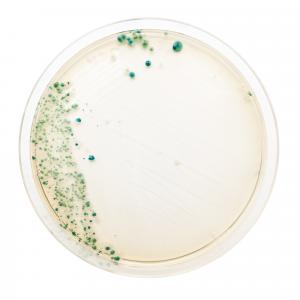 Antibiotic resistance is a big global public health problem. Of particular concern are multidrug-resistant Gram-negative bacteria, which are among the leading causes of serious, debilitating and life threatening healthcare-associated infections. There is an urgent need for new therapies to treat or prevent infections caused by these bacteria in hospitalised patients.
Antibiotic resistance is a big global public health problem. Of particular concern are multidrug-resistant Gram-negative bacteria, which are among the leading causes of serious, debilitating and life threatening healthcare-associated infections. There is an urgent need for new therapies to treat or prevent infections caused by these bacteria in hospitalised patients.
The EU- and industry-funded COMBACTE-MAGNET project is developing new antibacterial treatments for vulnerable patients, especially the critically ill in intensive care units. It is doing this by promoting collaborations between scientific experts.
“I think the creation of an effective public-private consortium like COMBACTE-MAGNET in itself is a major achievement,” says project coordinator Hasan Jafri of MedImmune, the global biologics research and development arm of AstraZeneca. “The project brings together top researchers and clinicians from five pharmaceutical companies – AstraZeneca, AiCuris, GSK, Basilea Pharmaceutica, and Sanofi – and more than 30 leading academic medical centres from 10 European countries.”
To date, the COMBACTE-MAGNET consortium has established a Pan-European platform called EPI-Net to access epidemiological data; is publishing the first results from an epidemiology study; and designing innovative clinical trials to advance development of novel molecules against multidrug-resistant Gram-negative bacteria.
Linking databases
There are many epidemiological databases managed by public entities like the World Health Organization or companies but, until this project, there was no central platform allowing access to aggregated data, according to Jafri.
“EPI-Net will strengthen our ability to monitor the spread of healthcare-associated infections and antibiotic resistance,” he says.
The consortium designed and successfully conducted the RESCUING study, which has assessed the outcomes for complicated urinary tract infections with a high prevalence of multidrug-resistant Gram-negative bacteria in Europe.
“This multinational, multi-centre retrospective study was conducted in 20 countries to help us better understand the risk factors for mortality and the outcome of urinary tract infections with Gram-negative bacteria in hospitalised patients,” says Jafri. “The results were recently published in the journal Clinical Infectious Diseases and will help us develop more effective strategies for tackling urinary tract infections.”
Novel molecules
Researchers in the COMBACTE-MAGNET consortium are combining their knowledge and experience to develop novel molecules to combat multidrug-resistant Gram-negative bacteria.
In particular, they are conducting studies to evaluate a promising new beta-lactam antibiotic called AIC499, developed by AiCuris, with activity against a broad range of multidrug-resistant Gram-negative bacteria, as well as a novel monoclonal antibody, AstraZeneca’s MEDI3902, against Pseudomonas aeruginosa, a leading cause of infections in intensive care units where it is associated with significant patient morbidity and mortality.
MEDI3902 is currently being studied in a clinical trial.
“We are using the monoclonal antibody in a very novel manner to see if we can prevent infections from occurring in the first place,” says Jafri. This, he adds, would be particularly valuable if it could stop infections from developing in highly vulnerable patients.
Patient involvement
The project has embraced Patient Public Involvement, or PPI, and involved patients in the design and running of clinical trials. Members of the consortium have developed a unique toolkit to advance the concept further in the context of acute infections.
“Thanks to the collective efforts of the leading experts in the area of ICU and antibacterial research, COMBACTE-MAGNET is ideally suited to developing novel molecules in challenging and difficult to enrol patient populations,” adds Jafri.
The Antibacterial Resistance Leadership Group (ARLG), an academic consortium funded by the US National Institutes of Health (NIH), has joined forces with COMBACTE-MAGNET in conducting clinical studies on antimicrobial resistance. Jafri believes this is further validation of the importance and quality of the scientific projects COMBACTE-MAGNET is driving to address the challenge of antimicrobial resistance.
This project is funded by the Innovative Medicines Initiative, a public-private partnership between the EU and the European pharmaceutical industry.
Project details
- Project acronym: COMBACTE-MAGNET
- Participants: Sweden (Coordinator), Netherlands, Belgium, Switzerland, Germany, Spain, UK, France, Italy, Austria, Israel
- Project N°: 115737
- Total costs: € 168 658 670
- EU contribution: € 75 340 000
- Duration: January 2015 to December 2021
See also
Project website
Project details
Source: European Commission, Research and Innovation Information Centre
